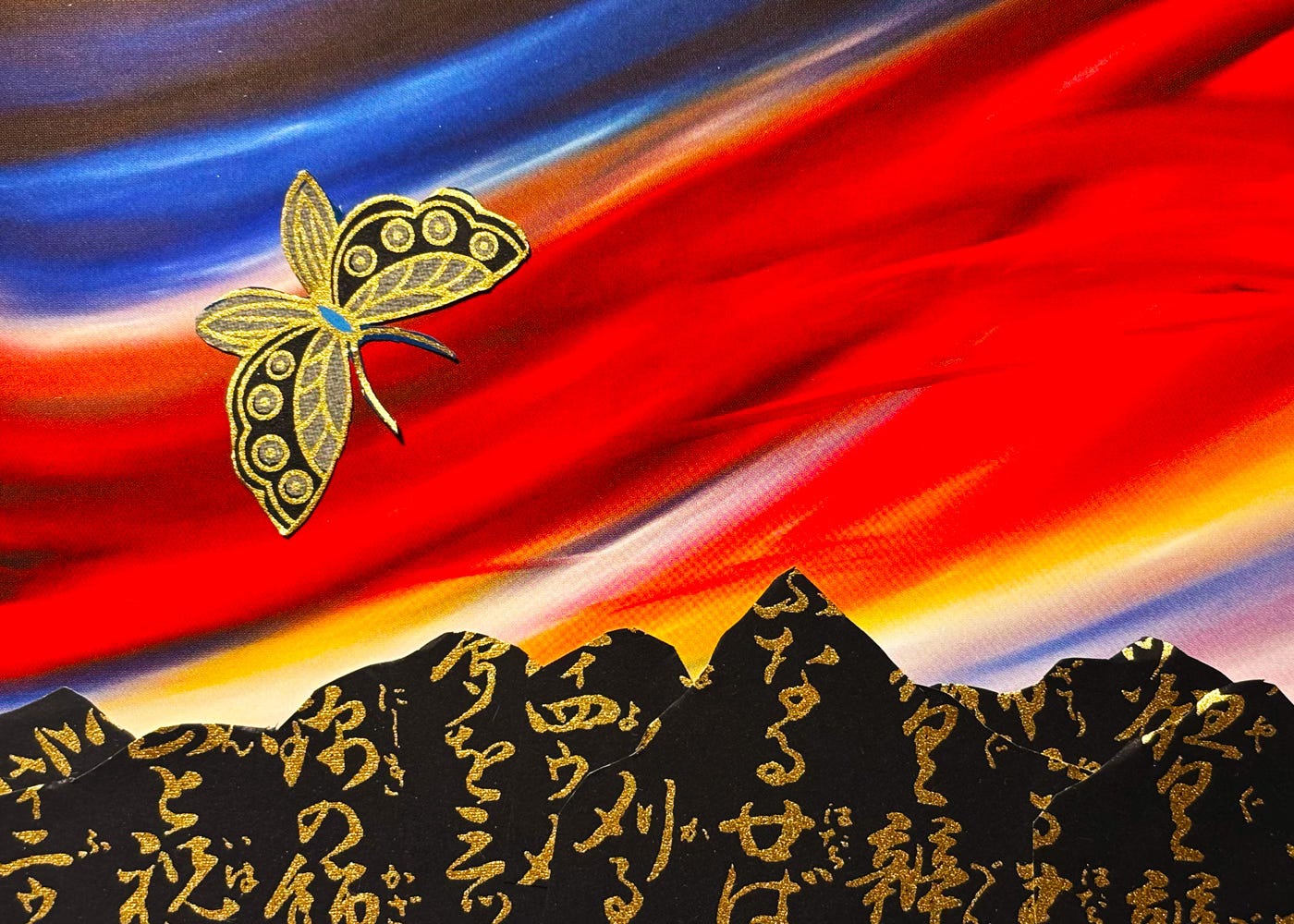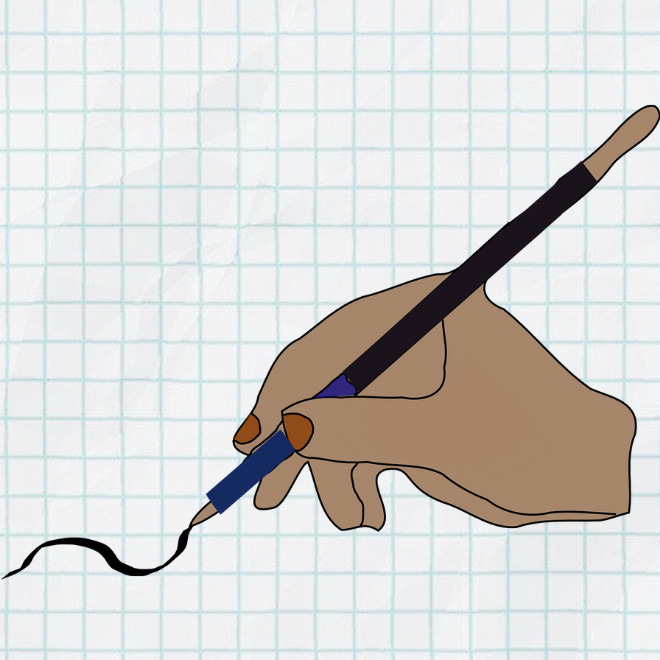Welcome back to #AcWriMoments, a yearlong experiment in purposeful scholarship creation. On the first day of each month in 2024, we offer you a guidepost with a unique theme and simple prompts for living out the theme as a scholar and a human. Return to the guidepost all month long, anytime you need support for cultivating SACRED (strategic, artisanal, creative, reflective, embodied, delicious) moments of communion with yourself and your work. May these offerings encourage you in your pursuit of whatever goals and visions you deem worthy of your attention—the most precious resource you have.
Theme for March 2024: RISK
A RISK is a daring attempt, an uncertain effort, a leap of faith. As a verb, to Risk is to exert yourself in a difficult undertaking. Risk carries no guarantee of success, but its potential rewards can be immense: the chance to create a life that’s truly yours. As we March bravely into the coming month — which is aptly named for Mars, the Roman god of war — consider what is worth Risking in your scholarly life. And consider how you might cultivate within yourself a belief that if (or when!) you fall flat on your face, you’ll find the courage to get back up again.
An academic Risk can be as small as selecting a saucy article title or unusual metaphor, or as massive as committing to an unorthodox dissertation topic, research area, or career path. Of course, the choice to take Risks within the (at times, let’s be honest, rather stodgy) halls of academia is entirely yours. If you’d prefer to play it safe, that’s your call. But remember that adhering to convention is its own form of Risk. In this one life that you have to live, following all the rules can mean missing out on adventures both large and small.
Helen recalls the biggest professional risk she ever took:
The year that my husband and I both turned 40 — with three kids, a house, and two good jobs (in my case, I had tenure at top tier Midwestern research university) — we decided to sell the house, pack all our earthly belongings into a 40-ft container, and move to my husband’s homeland of Aotearoa New Zealand, with no jobs or likely job prospects in the academic fields we had left behind.
Those first few years were tough, as we struggled to find our feet personally and professionally. But eventually we both reinvented ourselves in new careers that suited us even better than the ones we’d left behind, and our children got to grow up amongst friends and family in one of the most beautiful countries on earth, a place with strong social and community values that we cherish. Not long after we moved here, I experienced an unexpected creative flowering as a poet and artist, like a rose bush blooming more abundantly than ever after a hard pruning, and I shifted from writing about modernist poetry to writing about scholarly writing.
Would any of that have happened if we had stayed behind in our safe, comfortable life? Today, more than two decades after we took that leap into the unknown, our children have grown up into curious, confident adults, and I have learned to see risktaking as the doorway to transformation.
Margy reflects on how risk has shaped her life and work:
My hand shook as I pressed “send” on that fateful email to my beta testers back in 2019. With that one email, I was extinguishing the old ScholarShape, centered on editing services, without knowing whether the new ScholarShape I dreamed of would be born in its place: an original body of work advancing Story-Argument as an innovative approach to scholarship creation for the 21st century. In that email, I shared with beta testers the first version of the first video in a foundational Story-Argument resource that would lead to many more. Today, a revised version of that same video nestles within the ScholarShape Archives alongside many others I’ve created. Countless detours, catastrophes, and faceplants later, plus a few successes, here I am still building this body of work, more committed to it than ever.
How did I find the courage to send that first email back in 2019? I’m not an especially courageous person, so I use a simple trick that I call the Deathbed Test whenever I need to summon the will to leap off a cliff. The test is to ask myself, “If I don’t try this, will I regret it on my deathbed?” If the answer is Yes, I leap. The Deathbed Test has led me to every worthwhile place I’ve been over the years: into grad school and through it; across oceans and inside ancient ruins; in and out of marriages; and through many a grueling day’s work, some of which have paid off.
The thing about risk is that not every individual risk pays off. Yet somehow, on aggregate, all the risks taken together, with their assorted wins and losses, can add up to a life that feels worth living. There must have been easier ways than ScholarShape to support myself all these years. But looking back, none of the struggle feels wasted. Every moment fits into a larger story, the disasters and triumphs all bound up together in one intricate design.
We’d love to hear your stories too: of risks taken, deferred, or perhaps still dreamed of.
REFLECTION QUESTIONS
What is the role of risk in your scholarly work? What kinds of risks do you take most easily, and what kinds feel more difficult? Which risk has paid off for you the most, in expected or unexpected ways?
How do you decide whether to take a risk? Is it a gut feeling, or the product of studied analysis, or some combination of intuition and intellect? Is there anything you’d like to shift in how you assess (and follow through with) risk?
What resources and relationships are most supportive to you when navigating risky scholarly terrain?
PRACTICES & EXPERIMENTS
Risk something small. A clever turn of phrase, a stylish expression, an unscripted conversation?
Risk something big. A bolder thesis, a more ambitious proposal, a heart placed further out on your sleeve?
RISKY RESOURCES
Watch Helen’s recent interview on “Writing and Risktaking” with risk-embracing criminologist David R. Goyes.
Listen to “Your Writing Process as Epic Quest,” a 2021 podcast episode where Margy offers an early version of her Quest framing for navigating the process of scholarly Story-Argument creation. When you view your work as a Quest, the challenges become fascinating plot points, and every risk fits into a larger Story(-Argument). You’ll find a more recent iteration of the Quest framing in the free Scholar Magic course, and still another evolution is on the way for all who are registered for the free course.
Read Helen’s book chapter on “Risk and Resilience” in her book Air & Light & Time & Space: How Successful Academics Write.
As you live the theme of Risk this month, what possibilities open up for you that you hadn’t noticed before? How does Risk, as a lens, help you commit to what you value and hold onto your purpose as you navigate the obstacles—and receive the gifts—that life sends your way?
Thank you for joining us for #AcWriMoments! We’d love to hear from you. Please drop us a comment to let us know what you’re learning, trying, and discovering this month.
&COURSES & MEMBERSHIP: Trying to muster the courage to become the risktaking scholarly writer you’ve always wanted to be? Sign up for the Stylish Writing Intensive, Helen’s flagship 3-day online retreat for academic and professional writers who aspire to take their writing from stodgy to stylish — or from adequate to amazing — over the course of a single long weekend. Book before March 15 to get Helen’s new 6-week Wordcraft Catalyst bundled with your registration for FREE (a $550 value). Annual members of Helen’s WriteSPACE membership community take an additional 10% off.
SERVICES & WORKSHOPS: Ready for a leap into one-on-one support for developing your scholarly project for publication? Learn how Margy’s Story-Argument Foundations Service can support your process. For a communal experience, consider booking an interactive, on-site Story-Argument Workshop customized to the needs and goals of your group. Set up a free call today to explore possibilities!









The word and post I needed the most again!! Somehow these posts always appear and resonate with me at the right moment ❤️
I don't think I could have resonated with this month's post more, especially Helen's story of leaving a tenured academic job and starting fresh. I've just made the decision a few weeks ago to move back to the US after more than 15 years living abroad and with no job prospects ahead. Even though this Risk won't be undertaken for another few months while I finish this semester in my current role, I already have a lot of anxiety about it. I'm still an early career scholar (I hope), and it does feel right to be closer to my family, but I can only hope that this move will mean more positive than negative change. Your timely and inspired message is reminding me that I'm not alone. Thank you!